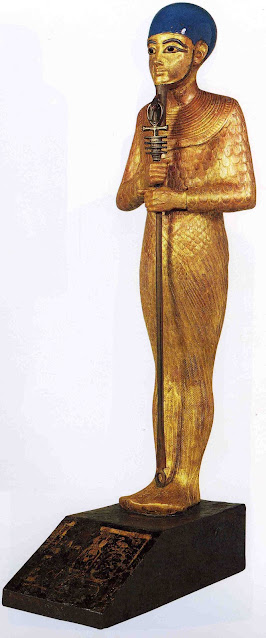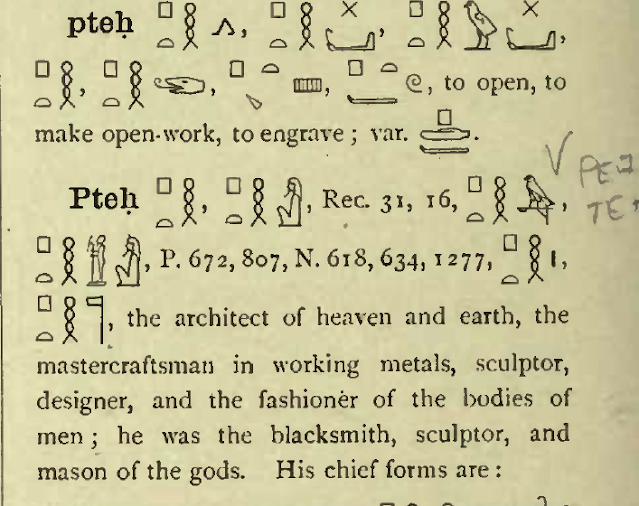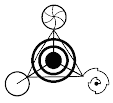While researching the true root etymology of the term "Amen", I came across another very interesting so-called "original Semitic" definitive. The ancient Egyptian deity PTAH (defined as The Opener) is a common term in the family of Semitic Morphology linguistics and is found numerous times in your Torah and in your Quran.

|
| Tutankhamun in the personfication of Ptah, also spelled Phthah |
Etymology: Ptah's original name in Ancient Egyptian is reconstructed to have been pronounced as Pitáḥ based on the occurrence of his name in hieroglyphics, ptḥ, surviving into Coptic as Ptah, just as it is now written in English. The name was also borrowed early on into Greek as Φθα Phtha. The meaning of his name, which can be translated as "the opener," is somewhat ambiguous, though it may be related to the "opening of the mouth" ritual that was often credited to him. (Budge 1895, cviii) However, it should be noted that the only uses of this verb in Egyptian texts place this "opening" in a very particular context, as represented by the verbs "to engrave," "to carve," or "to chisel"—a usage that is also paralleled in Hebrew. (Budge 1969, Vol. I, 500) In this way, the god's name echoes his association with crafting and creation. Source
Here's the exact same term only used in Hebrew.
And in Arabic.

|
| Pteh: E.A. Wallis Budge Hieroglyphic dictionary: 254b |
Conclusion: Once again, we see a term of a designated deity borrowed from the sacred Tamarean hieroglyph, redefined, and claimed as an original linguistic Semitic morphology when the reality is these so-called "original" terms have a verifiable foundation long before the rise of the Semitic culture.











